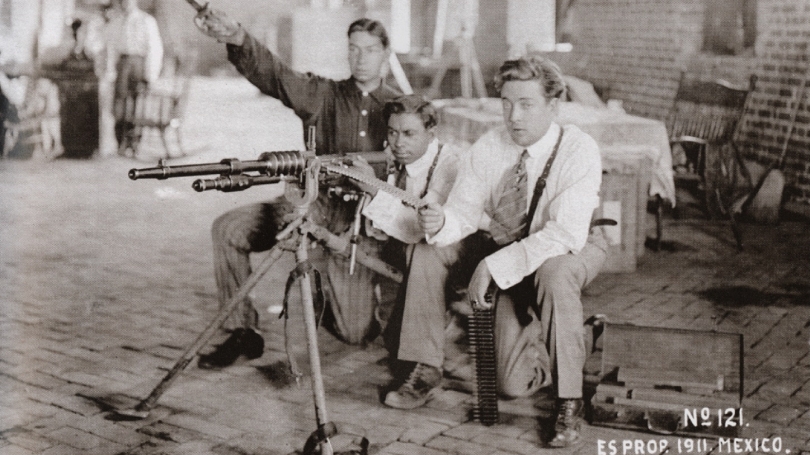
- About
- Undergraduate
- Foreign Study
- Student Opportunities
- La Casa
- News & Events
- People
Back to Top Nav
Back to Top Nav
Back to Top Nav
Back to Top Nav
Back to Top Nav
Join Ignacio Sánchez Prado, Horacio Legrás, Adela Pineda Franco and Sergio Delgado-Moya for a cultural lecture discussing the shift in media post Mexican revolution.
Friday, February 15, 2019
4:30pm-7:30pm
Carpenter 13
Dinner provided
-----------------------------------
Popular Cosmopolitanism. Noirs and Literary Classics in Post-Revolutionary Mexican Cinema with Ignacio Sánchez Prado
Studies of the culture of the Mexican Revolution usually focus on the construction of national identity, cultural specificity and the idea of the people, as well as on the many ways in which culture participated in constructing social and political hegemony. This paper argues that we should also understand within the framework of Revolutionary culture those products of cosmopolitanism, since the Mexican revolution was also a process of capitalist modernization and gradual intersection of Mexico to global markets and cultures. I will thus use two genres of Mexican cinema -the noir and the literary adaptation- to speak of a Mexican revolutionary culture focused towards Europe and Latin America while co-existing with more conventional forms of Mexicanness and nationalism.
Mexican Photo-Journalism Against the MoMA with Horacio Legrás
In this presentation I revisit the history of the rise of photography to the status of art and how the canon of that art was first elaborated by curators at the Museum of Modern Art in New York. This canon actively sidelined photo-journalism as a non-artistic form of expression. However, a non-aesthetic photography is a contradiction in terms. If this is so, how should we re-imagine the theoretical framework of photographic studies to accommodate the dazzling and enormous photo-journalistic production of the post-revolutionary period in Mexico.
The Global Dimension of the Mexican Revolution: Cinema and the Archive with Adela Pineda Franco
According to French philosopher Paul Virilio, the power of modern warfare lies in its capacity to captivate human perception through the media spectacle of war. The Mexican Revolution of 1910, the first major twenty-century social revolution, was a modern war in this sense. It broke out at a time when pioneering film companies were discovering the potentiality of the newsreel to convey the drama of war on a global scale. This feature only became exacerbated during the years of national reconstruction (1921-1940), when a myriad of national and foreign artists contributed to increase the proliferation of visual material, enhancing the revolution’s iconic character. The hermeneutical possibilities of the revolution’s immense visual archive have triggered cultural and political interest in and outside Mexico. My talk will comment on the repercussions of such archive on global revolutionary thinking during the twentieth century by exploring the links between world cinema and intellectual thought.
Asco and Gore: No Movies, No Fiction, and Some Murals in Chicano Art and Activism with Sergio Delgado-Moya
In 1970s Los Angeles, in a city buoyed by the film industry and riddled with racial injustice, Chicano art collective Asco organized and executed a series of religious processions, urban performances, graffiti interventions, apocryphal films, and staged crime scenes. My talk grapples with Asco’s gamut of critical media interventions, particularly its appropriation of two forms of public culture (movies and mural paintings) closely linked to Mexican post-revolutionary culture. Of special interest to me is Asco’s tactical use of spectacle – the kind associated with sensationalism – as a way to break through the political and historical conventions that kept – and keep – Mexican-American and Latinx subjects out of frame and out of sight. The main argument I’d like to make is that Asco’s murals, and to a greater extent their “No Movies” (a mixture of mock film materials and violent images of the kind featured in the Mexican crime tabloid Alarma!), function as perversions. They alter conditions of visibility established by the film industry, in such way that we can see Chicano bodies and Chicano faces in terms of what they are not: not movie stars, not entertainment, not invisible, and no fiction.